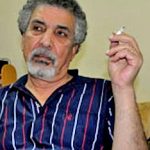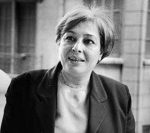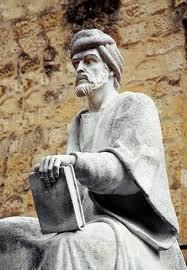Table of Contents
Editorial
German English Arabic
Arab Prison Literature
Radwa Ashour – Egypt
English
Experience with writing – Afterword to the autobiography “Dreams of freedom”
Aisha Odeh – Palestine
German
The slow death of Muhammad Lghalu “- translated excerpt from the autobiography” Tazmamart: az-Zinzana raqam 10 (Tazmamart, cellule no. 10)
Ahmed Marzouki – Morocco
German
Excerpt from the novel “al-Qawqa’a. Yawmiyyat mutalassis “(The Shell. Memoirs of a Hidden Observer) by Mustafa Khalifa translated by Elisabeth Jaquette
Mustafa Khalifa – Syria
English
The philosophy of nonviolent resistance of Henry David Thoreau as example
Hassan Kamel Ibrahim – Egypt
Arabic
Book Review: Insights in the book “The prophethood of Mohamed: History and construction: an access towards a critical reading” by Mohamed Mahmoud
Kadhim Habib – Iraq/Germany
Arabic
Book Review: Sowing the Wind – harvesting the storm – The failure of Western policy in the Middle East – Review of the book “Sowing the Wind. The Effect of Western Policy in the Middle East” by Michael Lüders
Hamid Fadlalla – Sudan/Germany
Arabic
- Excerpt from the novel “al-Qawqa’a. Yawmiyyat mutalassis” (The Shell. Memoirs of a Hidden Observer)
 العربية DeutschMustafa Khalifa I wrote most of these diaries in the desert prison. But the word “wrote” isn’t quite accurate. There are neither pens nor paper to write on in the desert prison. This colossal structure—made up of Courtyard Zero, seven more courtyards, thirty-seven dormitories, new, unnumbered dormitories, cells in the fifth courtyard, and still […]
العربية DeutschMustafa Khalifa I wrote most of these diaries in the desert prison. But the word “wrote” isn’t quite accurate. There are neither pens nor paper to write on in the desert prison. This colossal structure—made up of Courtyard Zero, seven more courtyards, thirty-seven dormitories, new, unnumbered dormitories, cells in the fifth courtyard, and still […] - Arab Prison Literature
 العربية DeutschRadwa Ashour PDF East of the Mediterranean (1975), a novel about torture and abuse of political prisoners, is probably the most widely read prison novel in Arabic literature. It was the author’s second novel. His first novel published 2 years earlier, The Trees and the Assassination of Marzouq (1973), was about a man who […]
العربية DeutschRadwa Ashour PDF East of the Mediterranean (1975), a novel about torture and abuse of political prisoners, is probably the most widely read prison novel in Arabic literature. It was the author’s second novel. His first novel published 2 years earlier, The Trees and the Assassination of Marzouq (1973), was about a man who […] - Editorial – 18th issue winter 2015/2016
 العربية DeutschDear readers This special edition of Minbar Ibn Rushd is dedicated to prison literature, the subject of this year’s Ibn Rushd Prize for Freedom of Thought (2015). We begin with an essay by the late Egyptian author and literary critic Radwa Ashour on prison literature. In it she analyzes some works of former prisoners, who […]
العربية DeutschDear readers This special edition of Minbar Ibn Rushd is dedicated to prison literature, the subject of this year’s Ibn Rushd Prize for Freedom of Thought (2015). We begin with an essay by the late Egyptian author and literary critic Radwa Ashour on prison literature. In it she analyzes some works of former prisoners, who […]




